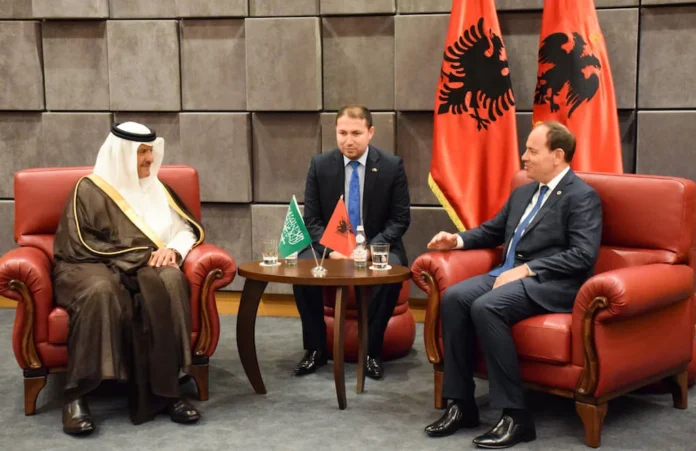Author: Rositsa Atanasova
Affiliation: Center for Legal Aid -Voice in Bulgaria
Organization/Publisher: Berkley Center for Religion, Peace & World Affairs, Georgetown University
Date/Place: June 29, 2020/ Washington, D.C., USA
Type of Literature: Article
Word Count: 1598
Keywords: Turkey, Saudi Arabia, Balkan, Bulgarian Muslims, Religious Influence
Brief:
Rositsa Atanasova, a lawyer and advocacy expert, examines the Turkish and Saudi influence on the Bulgarian Muslim community since these countries are the most active ‘theo-political actors’ seeking influence and role in the post-communist era. While Turkey’s project is based on the ‘moderate tradition of the Muslim Community,’ Saudi’s doctrine is introducing Wahhabism as true Islam. The author begins by highlighting the historical context and the demographics of Bulgarian Muslims. She underlines that the institutional framework of Islam is a combination of the Ottoman heritage and the continuous influential role of Turkey. She refers to the Chief Mufti’s Office as the formal institutional structure representing Muslims’ interests. While the office resembles the Ottoman Sheikh ul-Islam model, it also depends on the Russian paradigm of hierarchical structure for Islamic clergy. Its main task is representation of Bulgarian Muslims and management of the mosques and educational institutions. The Turkish role came up after the fall of the communist regime, which opened the floor for Islamic institutions’ establishment in Bulgaria. This role was not only due to historical ties and tradition, but also due to the essential need for funding, which was mainly provided by the Diyanet (Religious Affairs authority). Consequently, Turkey controlled the formal institutional Islamic structures. This domination marginalized other groups of non-Turkish speaking Bulgarian Muslims, which raised resentment towards what they claimed as ‘Turkification’ of Islam. On the other hand, Saudi Arabia aspired to gain influence by filling the empty spaces left by Turkey. In other words, the Saudis dominated the informal spaces of Bulgarian Muslims including publications, informal Quran courses, and educational grants to promote the Wahhabi doctrine. The Saudi’s role had no real impact on Turkey’s influence base, but it gave space for other groups. Recently, Saudi Arabia terminated its activities which were justified by a shift in priorities from outside to inside the kingdom. As a result, Turkey possesses full control and visibility among Sunni Bulgarian Muslims not only in a formal traditional (that is stricter than local practice), but also informal domain. Many Turkish NGOs come to the fore in Bulgaria with participation in social projects. Despite the change in the balance of power of external actors, various ethnic, political, and religious divisions exist among the Bulgarian Muslim Community.
By: Yomna Süleyman, CIGA Research Assistant




